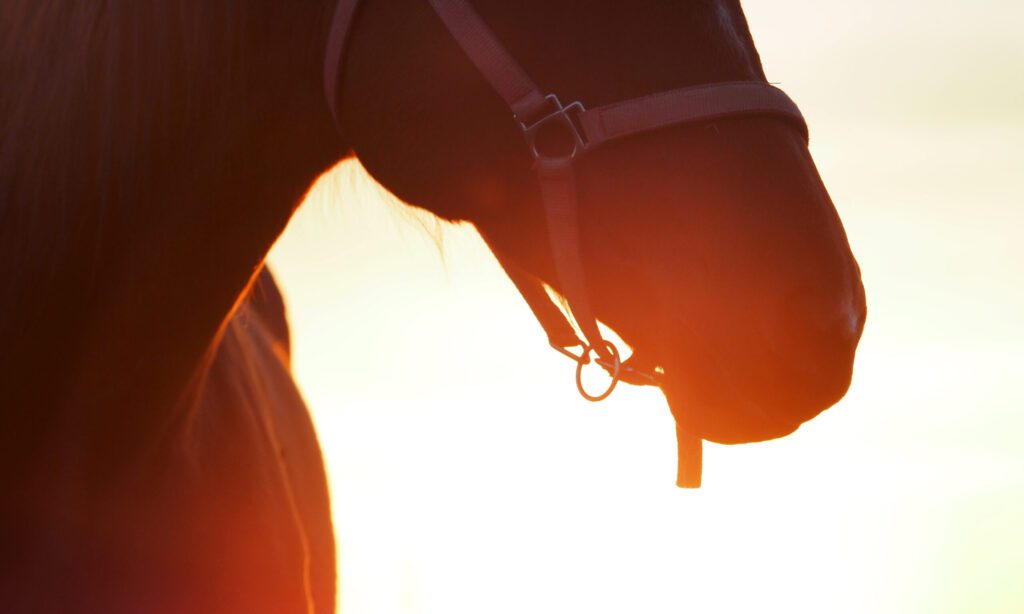Try These Tips to Keep Your Horse Cool as Temperatures Rise
by MATT COBBLE
While our recent cold snaps may make us forget for a time, summertime in Florida is never far off. This does have its advantages, such as longer days to enjoy the outdoors, but our Floridian summers do have some drawbacks, especially for our equine friends. Although horses do have mechanisms for self-regulation of their temperature, such as sweat glands and increasing their respiration, those tactics are somewhat less effective in high humidity. We’ve collected a few tips to help make sure you (and your horse) are able to make the most out of summer.
Plan Ahead for Turnout
Although it may seem kinder to leave your horse in the shelter of the stable all day during hot summer days, it’s best for their overall well-being to have some time outdoors (or “turnout”) at some point in the day. Midday is out of the question — the temperatures can easily climb past 90 degrees. Evening or overnight turnout are options, but many horse owners are uncomfortable with some of the risks of leaving their horses turned out all night unsupervised. Turning your horse out early in the day allows them plenty of time to run, roam, and graze and still get back into shelter before the heat of the day becomes overbearing.
Lead Your Horse to Water
Staying hydrated is just as important for horses, and while the saying about “not making them drink” holds true, there are certain practices you can implement to encourage your horse to drink more. Adding an electrolyte supplement to their feed on especially hot days can encourage horses to take in more water and stay hydrated longer. (Obviously, check with your veterinarian before implementing this practice long term.) Also, consider swapping out their salt lick with a mineral lick or Himalayan salt to allow your horse to self-medicate their own electrolyte needs.
Tell Flies to Buzz Off
Unfortunately, it seems that whenever the humidity and the mercury rise, the insect population comes out in droves. Two products available that can provide some relief are fly sheets and fly spray. Fly sheets are coverings that prevent insects from getting to your horse’s body — although some heavier sheets may be too hot during the height of summer. Fly sprays are a treatment applied directly to the coat that repels flies without the need for a physical barrier. (A quick internet search brings up methods for mixing your own, though your mileage may vary.)
Know When to Ride
As with turnout, you want to plan ahead for if or when you will ride. The heat of the day is not the time for horses to exert themselves, so either ride early in the morning or in the late afternoon into the evening. (The evening ride is a great follow-up to an afternoon rainstorm.) Some days, though, you may find it too hot for even a simple ride, especially if you have a horse that does not sweat well. Those days you may need to find an alternative, such as walking with a loose rein or spending some extra time grooming to have that bonding time without pushing your horse past its limit.
Enhanced Grooming
Horses can sweat quite profusely, even under normal conditions. When you add in the heat of summer or the extra exertion of a hard ride, the sweat can come pouring off of them. So spend a little extra time grooming in the summer. The water will help to cool them off more quickly and also rinse away the irritants that can stick in their coats. But you will need to scrape the water off of your horse or the residual water will hold heat against your horse and actually warm them back up. You might also want to consider a spray-on liniment or after rinse to relax sore muscles.
Coat Care
Maintaining your horse’s coat is essential during the summer months. Depending on how quickly your horse’s coat grows, you may want to get it clipped every four to six weeks to keep it from getting too thick.
Make Them a Frozen Treat
Humans aren’t the only ones to enjoy a cold treat on a hot day. Roughly chop some of your horse’s favorite vegetables, put them in a large bowl, then fill the rest of the bowl with water or juice. After freezing overnight, you can just put it in their feed bucket and let them enjoy.
Watch for Heat Stress
No matter how many precautions you take, you should be aware of what you’re trying to prevent. If you notice significant sweating, an elevated resting heart rate, rapid breathing, dehydration, or conspicuous fatigue, try to cool them off immediately.
Hopefully, these tips will help you, and your best friend, enjoy all the best that summer has to offer without either of you pushing yourself too hard. Just because the temperature is climbing does not mean you cannot have some fun in the sun.

